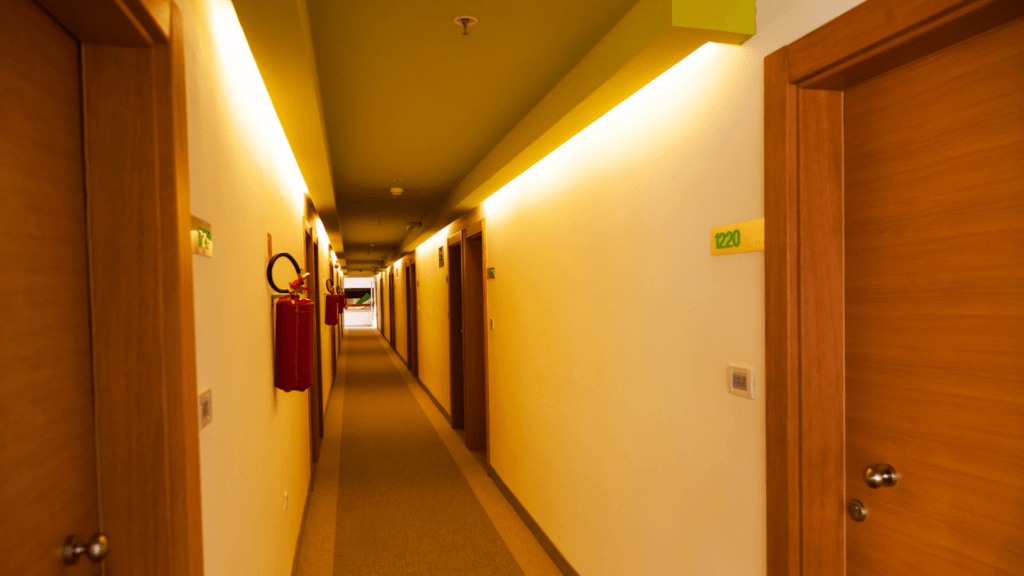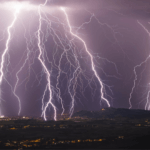
Owning and operating a hotel can present many challenges for the owners and operators. One of the most important safety considerations for hotels is how to protect both the business and hotel guests in the event of a fire. To do so, Hotels should improve fire safety measures, which will help avoid costly damage.
Fire Safety Measures Hotel Owners Should Consider
According to the Topical Fire Report Series from the U.S. Fire Administration and the Federal Emergency Management Agency (FEMA), nearly 4,000 fires occur at hotels and motels each year, resulting in $100 million in property damage. While some hotel owners may assume their fire safety standards are up to par, many items can easily be overlooked. Important fire safety considerations for hotels include:
Testing Alarms and Holding Regular Fire Drills
Fire alarms are arguably the most critical element to hotel safety when a fire breaks out. Once an alarm sounds, occupants immediately know what’s happening and can quickly make their way out of the property through emergency exits. Unfortunately, these systems often go unchecked for extended periods of time. Therefore, it is paramount to conduct regular fire alarm system tests.
When conducting a test, fire alarm control panels should be set to test mode to avoid notifying the fire department and emergency services. Once set, the fire alarm button can be pressed to signal the alarm. Test results should be recorded and a list kept of every activating device and how it reacted to the test. In the event one or more alarms are faulty, the list can help a technician locate and fix any problems more quickly.
Additionally, hotel managers should conduct regular fire drills for staff to practice the evacuation procedures that should occur in the event of a real fire and to highlight any areas in need of improvement.
Keeping Fire Extinguishers Close By
All hotels are required fire extinguishers rated class A, B, and C, which are capable of putting out small fires involving wood, paper, oil, and gas. According to the Occupational Safety and Health Administration (OSHA), fire extinguishers must be placed 75 feet apart throughout a hotel property. While guestrooms are not required to have fire extinguishers, they should never be more than 75 feet away in a hallway in case of an emergency.
Fire extinguishers should also be regularly checked to ensure they are at the proper weight or gauge limit as noted on extinguisher labeling after each use. If any issues are found, those devices should be replaced or recharged.
Decluttering
Ensuring hotel hallways, rooms, and common areas are free of clutter is incredibly important to fire safety, as a small flame can easily turn cluttered spaces into an uncontrolled environment. Hotel managers should ensure their employees are aware of any wall coverings – like large bulletin boards covered in paper, business areas with scattered documents, and entryways with pamphlets – which can easily become high-risk fire areas.
Hotel operators should regularly inspect doorways for easy access, and move any boxes, equipment, or trash from cluttered areas to ensure staff and guests are able to get to safety quickly in the event of a fire.
Performing Regular Inspections
Hotels must ensure their lights, alarms, fire extinguishers, and sprinklers are inspected each year – or as often as each device requires. Unfortunately, many hotels neglect their annual services, leaving them prone to costly damage in the event of a fire. Neglecting fire safety systems can also cause the equipment to erode over time, making it faulty.
Having a professional inspection done each year can prevent catastrophe. Once the inspection is complete, a report will be generated that includes the date of the inspection, the hotel name, type of occupancy, and any issues that need to be addressed.
Commercial Fire Damage Insurance Coverage
While it’s important for hotel owners to ensure their guests and staff are protected in the event of a fire, fire damage can be costly if the business does not have the appropriate insurance coverage in place. A commercial fire policy can help reimburse owners for fire damage to business property; however, not all policies provide blanket coverage for all damage resulting from a fire.
Often, commercial fire policies are sold as part of commercial property insurance and protect against fire damage that occurs to hotel properties whether owned or rented, the contents of those properties, the exterior of the properties, and any adjacent items, such as fences, landscaping, and outdoor signage.
Commercial fire insurance isn’t limited to direct fire damage either, as extinguishing a fire can also wreak havoc on a building and whatever lies inside. Fire suppressant materials, foams, and sprinkler systems will also damage a commercial property.
While most commercial fire policies provide coverage for any damaged property in and on the premises of the building, there are common policy exclusions as well. For instance, commercial fire policies do cover liability claims stemming from damage to others’ property or bodily injuries. If a fire that starts at a hotel spreads and destroys a neighboring business, the insurance may not cover damage to a neighboring property.
Fires can also be considered “friendly” or “hostile.” Friendly fire is the type of fire that is invited into a business willingly, such as through a lit candle or burning wood log in a fireplace. A hostile fire, however, is a fire that wasn’t started intentionally, such as an electrical fire or an act of arson. If a friendly fire spreads beyond its original container, any damage it may cause is generally not covered by fire insurance.
Commercial Property Damage Attorneys
When a fire starts at a hotel or other commercial property, it can quickly result in costly damage. Even if a property owner has a fire damage policy in place, insurance providers can still use tactics to delay, deny, or underpay valid claims. If your business suffered fire damage, the insurance coverage attorneys at Raizner Law can help. Contact us today for more information on how we can best assist with your claim.


